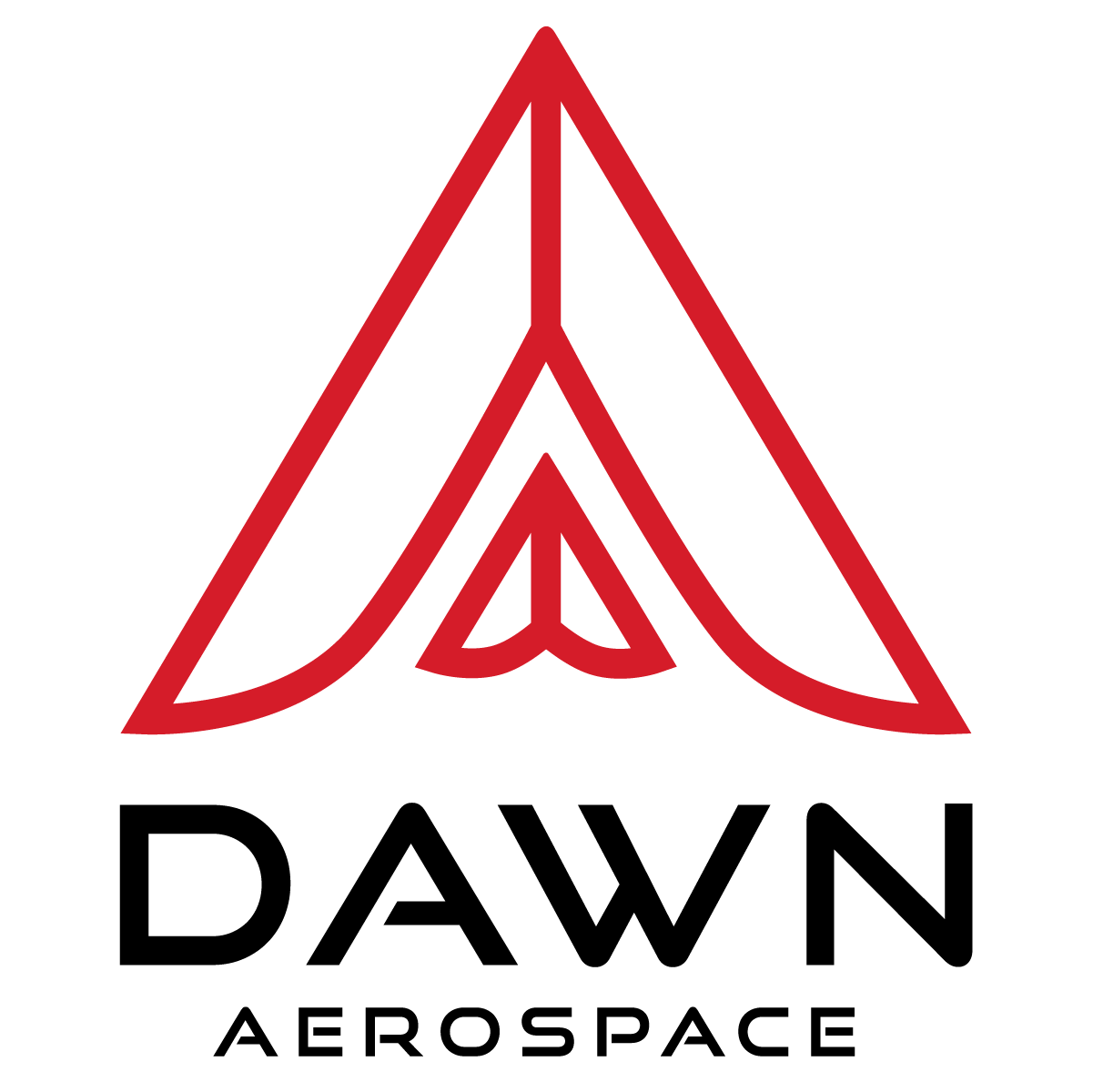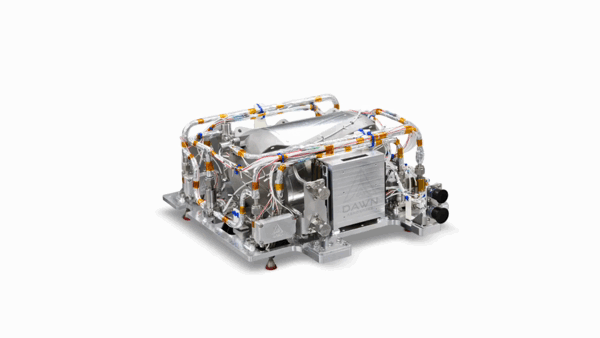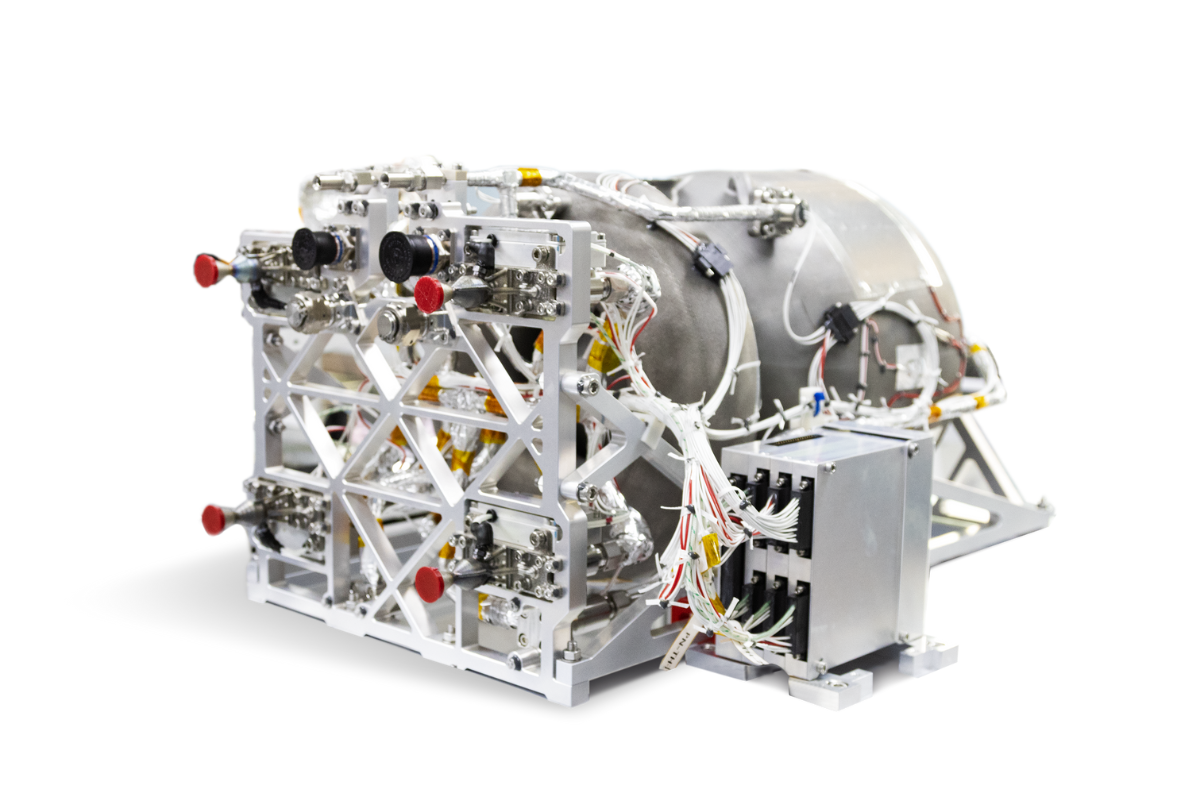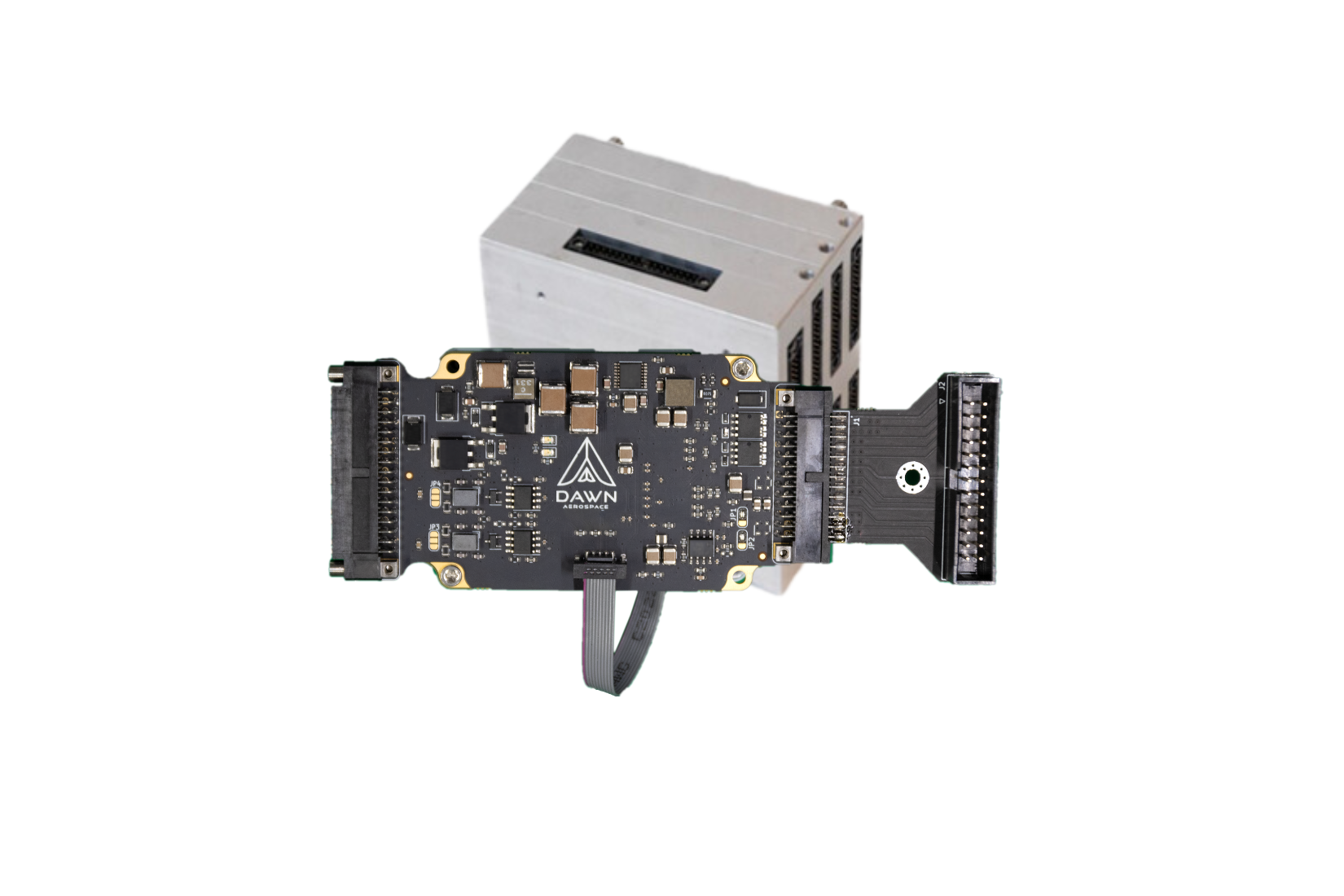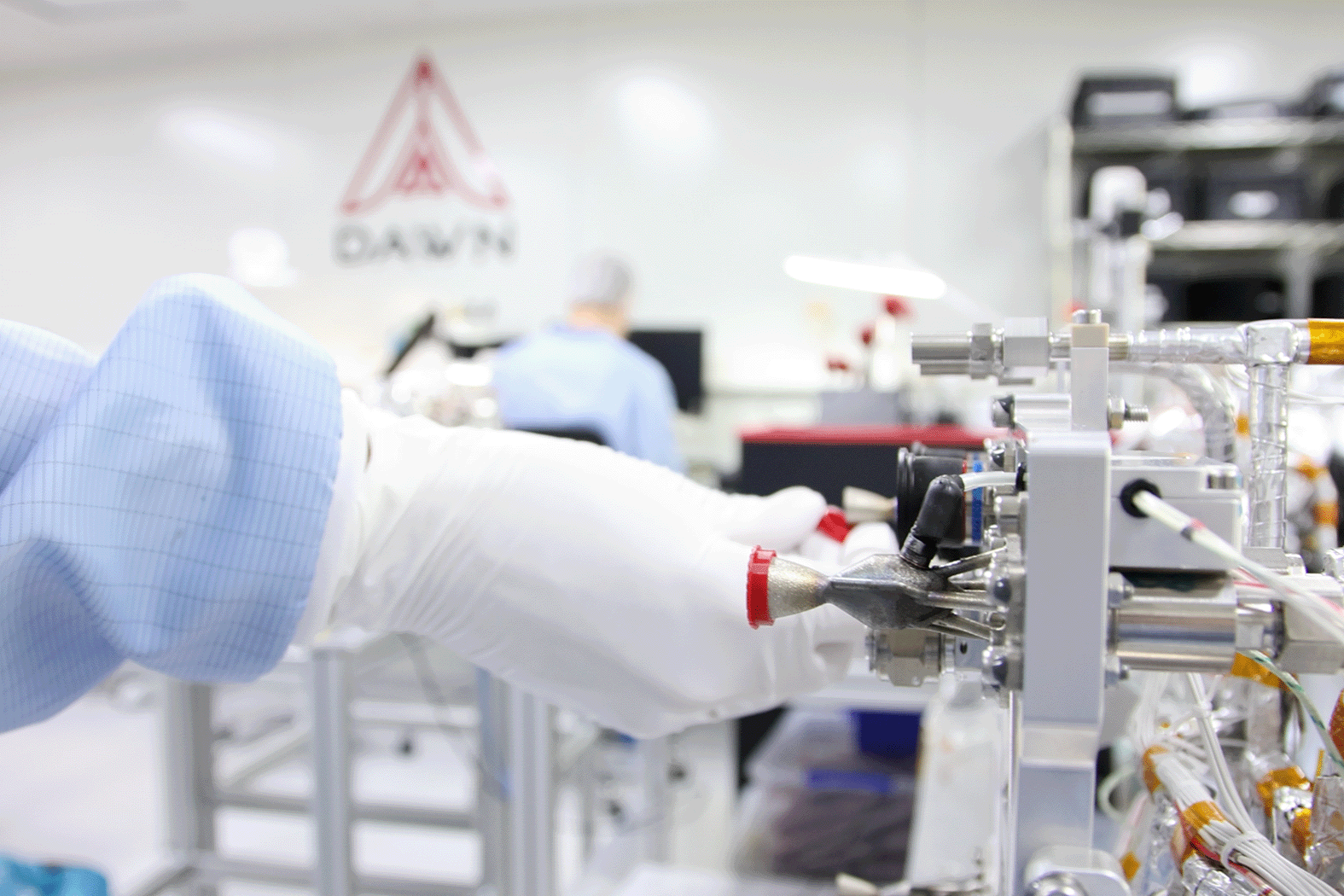
GREEN PROPULSION FOR ANY SATELLITE
Turn-key propulsion systems for 30 kg to 500+ kg satellites. Through standardised interfaces and flexible form factors, we deliver purpose-built systems — fast.
All systems include thrusters, tanks, valves, instruments, and control electronics. We’re a full-service partner, working with you wherever you need us, from initial design to on-orbit commissioning and operations.
Benefits of Chemical Propulsion
High thrust
Lower power
Modular
Scalable - 30 kg to 500+ kg satellites
-
Physical
Turn-key systems
All systems include thrusters, tanks, tubing, health monitoring, control electronics, and structuresPropellants
Nitrous oxide (N2O)
Propylene (C3H6)Pressurization
Self-pressurising. Propellants are stored as liquified gases under their vapor pressureForm factor
Standardised interfaces, flexible form factors. Adjust to volume, layout, and keep-out zone requirementsThrusters
Select QTY and thrust class(es). All connect to the same tank and control systems. Operate together or independentlyTank options
Type 1: All metallic. 3D printed using Inconel or Titanium
Type 3: Metallic liner with full, wound carbon-epoxy overwrap
Additional SpecificationsEnvironmental
Operational temperature
23°F to 86°F (-5°C to 30°C)Survival temperature
-22°F to 104°F (-30°C to 40°C)Regulatory
ITAR free and REACH compliantLauncher compliance
SpaceX Payload (Oct 2022) user’s guide. Please enquire for all other launchersPerformance
Total impulse
5,000 to 500,000+ N.s
Scalable in size and configurationThrust range
0.46 to 1.28 N (0.11 to 0.30 lbf) per B1 thruster
6.1 to 16.7 N (1.37 to 3.75 lbf) per B20 thrusterIsp, vac
250 to 280 s
Depending on system-level configurationInterfaces
Data
CAN bus, RS-485, or RS-422Supply voltage
Digital: 5.0 to 5.20 VDC
Actuators: 24.50 to 33.20 VDCServices
Full-service list
Off-the-Shelf or Customised Systems
Work with our engineers to create a custom system tailored to your requirements or leverage our extensive mission heritage by selecting a standardized design.
Reduced non-recurring engineering. Reduced costs. Reduced lead times.
Standard lead time: 6 months for recurring systems.
SD5 - 5kNs Class SatDrive
SD7 - 7kNs Class SatDrive
-
Total impulse - 5,000 N.s
Mass - 5 kg (dry), 7.5 kg (wet)
Volume (adjustable) - 36 x 31 x 15 cm
Variations - Two Completed -
Thrusters: 4x B1 thrusters
Tanks (Type 1 - Inconel): 1x Oxidizer, 1x Fuel
-
Total impulse - 7,600 N.s
Mass - 7 kg (dry), 11 kg (wet)
Volume (adjustable) - 87 x 42 x 10 cm
Variations - One Completed -
Thrusters: 1x B1 thrusters
Tanks (Type 1 - Inconel): 3x Oxidizer, 1x Fuel
SD70 - 70kNs Class SatDrive
SD15 - 15kNs Class SatDrive
-
Total impulse - 70,000 N.s
Mass - 20 kg (dry), 50 kg (wet)
Volume (adjustable) - 70 x 70 x 48 cm
Variations - Two Completed -
Thrusters: 5x B20 thrusters
Tanks (Type 1 - Titanium): 4x Oxidizer, 4x Fuel
-
Total impulse - 14,500 N.s
Mass - 11.3 kg (dry), 17.7 kg (wet)
Volume (adjustable) - 27 x 25 x 45 cm
Variations - One Completed
Further variations available - contact us. -
Thrusters: 4x B1 thrusters
Tanks (Type 1 - Inconel): 1x Oxidizer, 1x Fuel
Nodes: 1 Controller, 6 Peripheral
Frame: In-house design. Easy bolt-on style for customer.
Custom Systems
-
Customize to achieve:
Dedicated impulse performance (within volume constraint, as possible)
Dedicated control authority
Dedicated thrust performance
-
Thrusters
Tanks
Nodes
-
Standard lead time: 6-18months
See our building block methodology below enabled by additive manufacturing, in-house technological capabilities and in-house testing facilities.

Dawn’s Green Propulsion Heritage
17
Satellites
3
Launchers
82
Thrusters
2
Thrust classes
Customers and Missions
"We are moving fast, and we need suppliers that can match our cadence and quality. The in-space heritage, creative thinking and solutions-focused approach we've seen from Dawn give us great confidence in their ability to deliver."
— Stephen Steg, CEO, Blue Canyon Technologies
Modular SatDrive Systems - How it Works
Dawn’s range of standardized components are assembled into various form factors to meet your mission requirements.
Plug-and-Play Components
-
Our core building block.
1N + 20N components, scaled together to offer a wide range of possible thrust configurations.B20 (20N bipropellant) & B1 (1N bipropellant) thruster).
Learn More -
Our fully standardised thrusters can be grouped and arranged to meet different requirements but cannot be customised.
Learn more about our thrusters
-
We offer teardrop, toroidal, and capsule tanks.
Additively manufactured in inconel or titanium in various sizes.
Composite tanks currently in development for larger sizes.
OptionsType 1:
All metallic. 3D printed Inconel or TitaniumType 3: Metallic liner with full, wound carbon-epoxy overwrap
Propellant storage
Stored separately. No pre-mixed propellants.Pressurization
Self-pressurisingValves
Pressure relief valves on tanksHeaters
Polyimide flexible heaters on each tank and feedline. -
We have standardised our design and qualification process for tanks meaning customisation is possible with minimal NRE time.
Size range
0.8L - 10L
Larger sizes in development
-
Modular control electronics design utilizes a main controller node to interface with the satellite, and downstream nodes for subsystems.
This ensures the interface between the propulsion module and satellite is kept constant, even when the propulsion module design changes in successive generations.
Interfaces
Data
CAN bus, RS-485 or RS-422Power
5.0 to 5.20 VDC (Digital/logic supply rail)24.50 to 33.20 VDC (Actuator supply rail)Engineering model / flatsat
Represents power, data, and software interfaces for HIL testing -
Modular components can be scaled up or down for different system sizes.
-
In-house configured to meet your requirements.
-
Feed Lines
Valves
Software
CubeSat propulsion systems and bolt-on collision avoidance kits for ESPA-class satellites. Each CubeDrive includes a B1 thruster, tanks, valves, and control electronics. Structures are 3D printed as a single monolithic piece using Inconel, including fuel and oxidizer tanks. Health monitoring instrumentation includes various thermocouples and pressure sensors.
-
Status
In spaceThruster
One B1 thrusterTotal impulse
402.5 Ns
90.5 lbf.sMass (dry / wet)
1080 g / 1275 g
2.38 lbm / 2.81 lbmDimensions
80 x 96 x 96 mm
3.15 x 3.78 x 3.78 inPropellants
Nitrous oxide (N2O) and
Propylene (C3H6)Tank type
Type 1: All metallic, 3D printedData
CAN busSupply voltage
Digital: 5 to 5.2 VDC, and
Actuators: 12 VDC unregulatedOperational temperature
-5°C to 30°C (23°F to 86°F)Survival temperature
-30°C to 40°C (-22°F to 104°F)
-
Status
In developmentThruster
One B1 thrusterTotal impulse (~)
1450 N.s
325 lbfsMass (dry / wet)
2050 g / 2700 g
4.52 lbm / 5.95 lbmDimensions
200 x 96 x 96 mm
7.87 x 3.78 x 3.78 inPropellants
Nitrous oxide (N2O)
Propylene (C3H6)Tanks
Type 1: All metallic, 3D printedData
CAN busSupply voltage
Digital: 5 to 5.2 VDC, and
Actuators: 12 VDC unregulatedOperational temperature
-5°C to 30°C (23°F to 86°F)Survival temperature
-30°C to 40°C (-22°F to 104°F)
Thrusters
Our standardised thrusters for scalable, modular SatDrive systems.
- 20N
-
The B20 thruster assembly includes the thruster body, valves, and control electronics.
The thruster body is additively manufactured as a single structure using Inconel 718 and includes the injector, combustion chamber, and nozzle. Isolation valves are included upstream of the firing valves for added redundancy.
Health monitoring instrumentation includes an integrated and isolated thermocouple and chamber pressure sensor.
With standard data and power interfaces, thrusters are easy to command and operate.
The B20 is also operable under ambient conditions to enable fast turnaround ground testing.
-
Physical
Thruster dimensions
176 x 80 x 79 mm
6.93 x 3.15 x 3.11 inDry mass
600 g
1.32 lbmNozzle expansion ratio
100:1Valves
Normally-closed solenoid
Four per thruster (firing and isolation)Interfaces
Mounting
3x M5 threaded holesPerformance
Thrust, range
6.1 to 16.7 N (1.37 to 3.75 lbf)Minimum impulse bit
Bi-prop: 1 N.s (0.22 lbf.s)
Cold-gas: 50 mN.s (0.01 lbf.s)Ignition
Spark-based igniterPulse frequency
4 HzRestarts
11,000+ per thrusterControl
Operable together or independently
Select your desired quantity
Pair with B1 thrusters.Firing modes
Bi-prop & cold-gas. Switch at will. Managed by not engaging the spark-ignitor.Cold-start capable
Yes. Highly repeatable -
Download PDF and STEP files here.
- 1N
-
Available in various form factors, the B1 thruster is currently utilized as the central thruster in Dawn’s CubeDrive propulsion modules and as a modular building block within Dawn's turn-key SatDrive systems. They can be positioned throughout the spacecraft, in clusters, and at various cant angles.
The B1’s assembly includes the thruster body, valves, and control electronics.
Thruster bodies are additively manufactured as a single structure using Inconel 718 and include the injector, combustion chamber, and nozzle.
Health monitoring instrumentation includes an integrated and isolated thermocouple and chamber pressure sensor. With standard data and power interfaces, thrusters are easy to command and operate.
-
Physical
Thruster dimensions
108 x 79 x 40 mm
4.25 x 3.11 x 1.58 inDry mass
260 g
0.57 lbmNozzle expansion ratio
100:1Valves
Normally-closed solenoid
Two per thrusterInterfaces
Mounting
4x 3.2mm holes.Performance
Thrust, range
0.49 to 1.35 N (0.11 to 0.30 lbf)Minimum impulse bit
Bi-prop: 74 mN.s (0.016 lbf.s)
Cold-gas: 1.4 mN.s (3.1e-4 lbf.s)Ignition
Spark-based igniterPulse frequency
4 HzRestarts
18,000+ per thrusterControl
Operable together or independently
Select your desired quantity
Pair with B20 thrustersFiring modes
Bi-prop & cold-gas. Switch at will. Managed by not engaging the spark-igniterCold-start capable
Yes. Highly repeatable -
DEFINING FEATURES
High-performance propulsion
Experience significant time and power savings by switching to spark-based ignition, allowing you to conduct cold-start to full thrust firings in under 100ms. Achieve high performance exactly when needed by removing sensitive catalysts.
Rideshare friendly
Dawn’s propulsion systems have flown on every SpaceX Transporter mission to date, Starlink rideshare, and Arianespace’s Vega rideshare. Learn more about our safe failure modes and why launchers like what we’re building.
A unified architecture
All Dawn systems use the same highly scalable N2O/C3H6 architecture. Select your desired thruster quantity and thrust class(es), tank size, and interface, then let us do the rest.
Less parts = higher reliability
Propellants are self-pressurising and don't require external pressurants, high-pressure regulators, or mechanical PMDs. There are no rare-Earth materials, catalyst beds, or proprietary propellants. The result: low part count, low weight, low cost, and high reliability.
Dual firing modes
Unique for rendezvous and proximity operations, all thrusters can operate in both a bi-propellant and cold-gas mode by controlling the spark igniter. Even with large thrusters, achieve tiny impulse bits for RPO, fine pointing, and servicing.
Domestic propellant suppliers
N2O (purity class 2.0) and C3H6 (purity class 2.5) are widely available from domestic suppliers. ITAR-free and REACH-compliant, avoid the international supply chain, export control, and cost issues of proprietary propellant blends.
“We are excited to partner with Dawn Aerospace on this important feature for our LizzieSat™ constellation. We believe Dawn’s turnkey propulsion technology will allow us to extend our time in orbit and deliver on our future value proposition of providing space-based data to a multitude of industries.”
— Carol Craig, CEO & Founder, Sidus Space
"With their series of space-proven components, Dawn's modular system is designed to grow as we grow. They have all the building blocks and thrust levels we need, allowing us to scale systems as needed, up or down."
— Andrés Villa, CTO, UARX Space
“We’re proud to utilize Dawn’s propulsion system on our mission to provide the world’s best hyperspectral Earth-imaging satellites. Our goal is to launch a constellation that acts as a global health monitor for the planet. With Dawn’s help, we’re one step closer to achieving that and build a healthier planet.”
— Awais Ahmed, CEO & Co-founder, Pixxel

DESIGN, DELIVERY, & SUPPORT 🚀
Mission design
Whether you want orbit insertion, phasing, stationkeeping, debris avoidance, life extension, momentum management, de-orbiting, or all the above, we’ll help you with mission success.
Engineering support
Although our systems all use a unified architecture, we know that satellite builders have different needs. That’s why we give engineering support to all our customers.
Production
High-volume and high-cadence production. State-of-the-art additive manufacturing with lean production methodology. In-house 5-axis machinery and cleanrooms.
Accelerated schedules
Enabled by vertically integrated capabilities of engineering, manufacturing, and testing.
Environmental qualification
In-house hot-fire and hydrostatic test facilities. Access to world-class test facilities for thermal cycling, shock, 3-axis vibration, and radiation testing.
Acceptance testing
In-house vacuum chambers and ambient test setups for hot-fire and full hardware-in-the-loop tests. Standardized and well-defined test procedures and quality assurance plans.
Export
Global export licenses, exporting from New Zealand and The Netherlands. Flown on satellites launched aboard 🇺🇸 and 🇪🇺 vehicles.
Launch-site fueling support
Dawn provides worldwide support for satellite fueling and propellant sourcing, whether at the launch site or your own premises.
On-orbit commissioning
We don’t just deliver you hardware, a few ICDs, then leave you to it. We are a full-service partner by your side the entire way.
